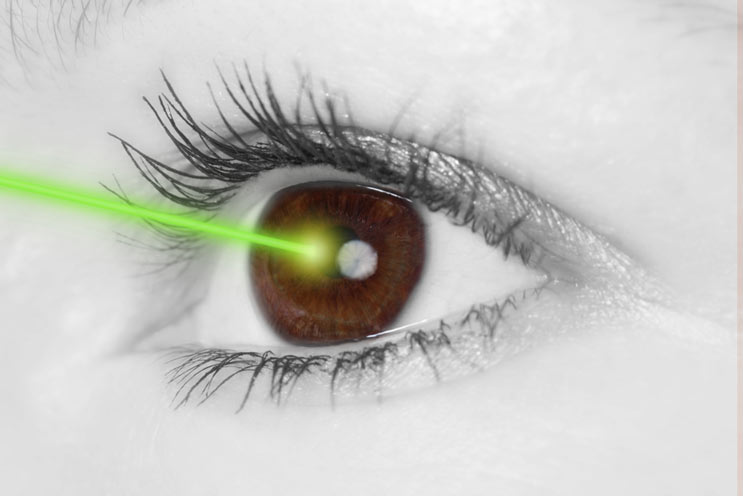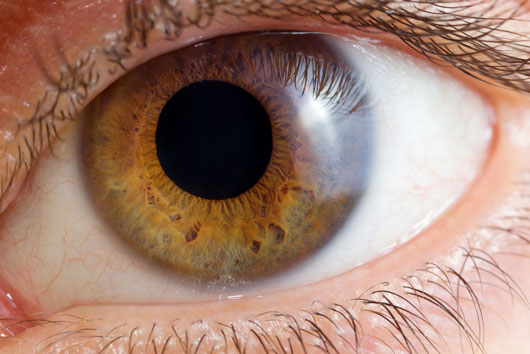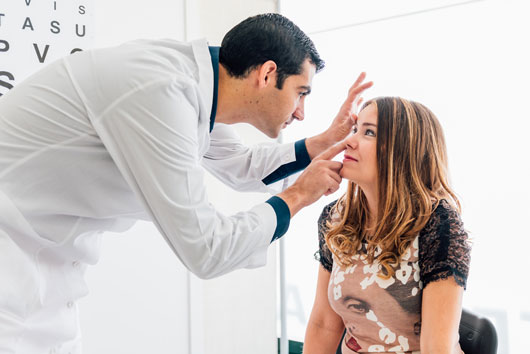
Longing to toss your glasses or contact lenses for good? Then you may have already considered corrective LASIK eye surgery, but are unsure if it´s safe or right for you. According to the American Academy of Ophthalmology, LASIK (laser-assisted in situ keratomileusis), which is by far the most popular kind of corrective surgery, will allow you to achieve somewhere between 20/20 and 20/40 vision, without the need for contact lenses or glasses. Both PRK (photorefractive keratectom), the second most popular type of surgery and LASIK´s predecessor, use lasers to reshape the cornea. The only difference is that LASIK surgery involves making a flap in the cornea, while with PRK, the laser treatment is done right on the surface of the cornea, without the flap. In addition, LASIK eye surgery doesn’t change the structural integrity of the cornea as much as PRK does, so that a surgeon concerned that the cornea will not hold its shape after the surgery might opt for PRK.
So what are the pro and the cons for today’s laser surgeries and can it really give you perfect vision? Dr. James Salz, M.D., a clinical spokesperson for the American Academy of Ophthalmology, told the Huffington Post, that if you have a mild prescription ( -1 or -2) you don´t have much to gain much from LASIK. But if you are at least moderately nearsighted (5 or -6), this type of patient in turn has a lot to gain, and usually with excellent results. “Meanwhile, people with a -9 or -10 prescription who are unable to see the large E on an eye chart unless they get about 3 feet from the chart have the most to gain from LASIK,” advised Salz.
Read Related: 15 Ways to Improve Your Eyesight

The main pro of LASIK surgery, as per Livestrong, is that it can make a huge difference in your appearance and lifestyle. Laser surgery can be done in minutes for both eyes (it will take 10 to 15 minutes to perform for each eye), the recovery is quick (you can usually drive a car the very next day) and your new vision is noticed almost immediately. Bye-be clunky glasses and annoying to insert contact lenses!
The cons, like any type of surgery, is that if the surgery is performed incorrectly, the patient may experience infections, double-vision, halos, dry eyes, scratchiness, light sensitivity, glare issues, or, and which is rarely the case, permanent vision loss. And while Lasik surgery works well with near-sighted patients, those who are far-sighted often complain that their vision continues to worsen after the procedure. According to a Consumer Reports National Research Center survey of 793 adults who had LASIK, more than half of the people who have it or other laser vision-correction surgery still need to wear glasses at least some of the time.

While every case is different, if you have a fairly strong case of nearsightedness, the good news is the majority of people who undergo LASIK achieve somewhere between 20/20 and 20/40 vision according to the American Academy of Ophthalmology. But ultimately, the only way to decide if corrective eye surgery is for you is to discuss the pro and cons of the surgery with your eye doctor.











